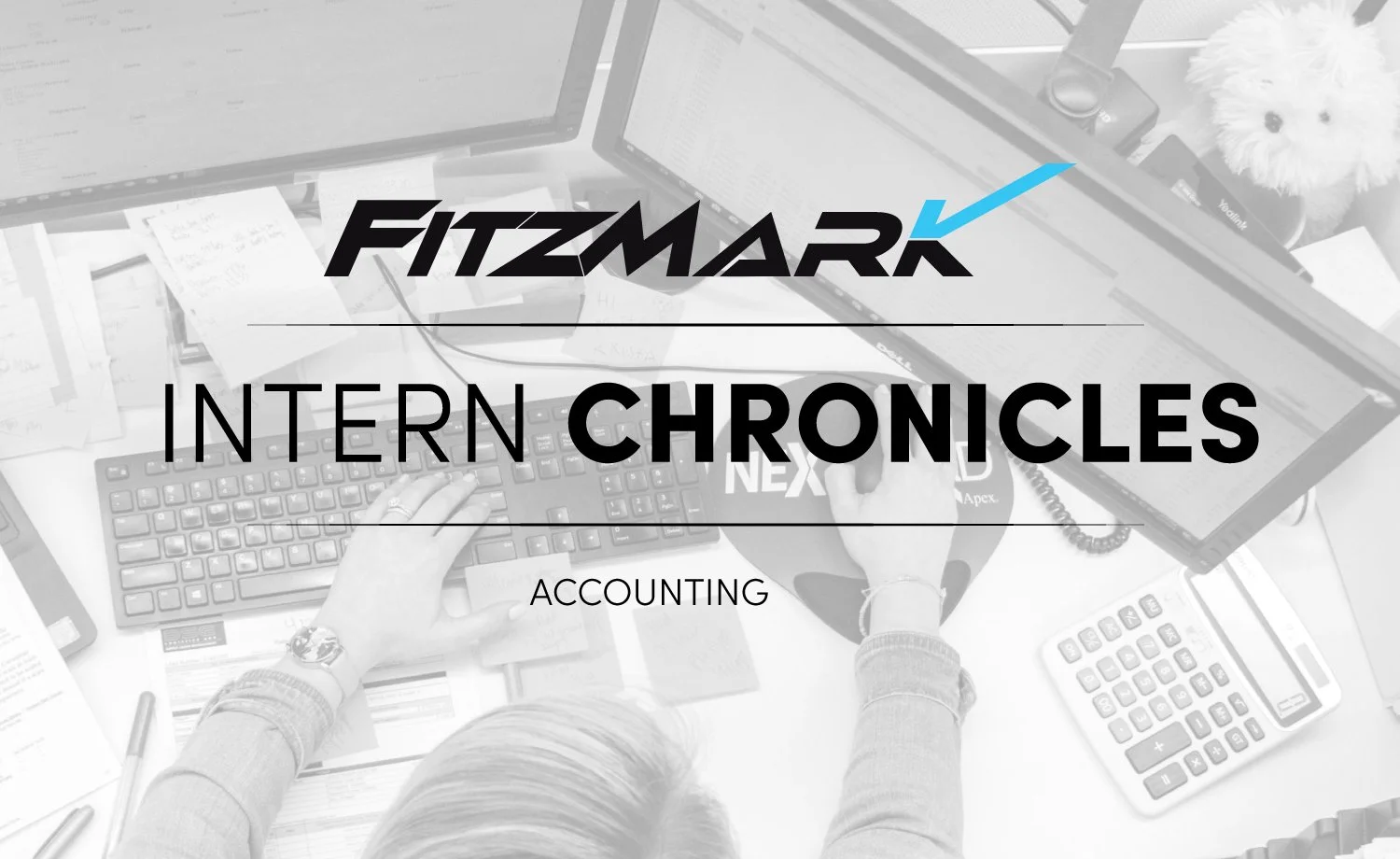" Through my time here at FitzMark, I felt welcomed into the FitzMark culture. Though only a few months, the culture at FitzMark is one of the major takeaways that I will take with me post-internship."
Anthony Gilyan
FitzMark Accounting Intern.
What was my experience as an accounting intern? Where do I start? My roles and responsibilities vary between the different departments. Daily, I needed to be prepared to tackle any challenge thrown at me, whether simply posting checks or going through the list of late payments and requesting updates personally. With such a vast range of tasks that could be asked, as an intern, I learned that time management was vital in completing studies at the end of the day. Therefore, when working through the week, it was essential to find out what accounting events would take place, and most importantly, when to plan and create a time window to accomplish these tasks.
“The FitzMark accounting team has been AMAZING!”
In addition to time management, the Fitzmark Accounting internship provided me with more attributes and skills to continue to build upon in the future. A great example of one of these skills would be independence with projects. For previous internship roles I have held, much as a group led or demonstrated beforehand. With many presented tasks, I was eager to learn and discover how to accomplish these individually, with assistance given when asked. This form of learning enabled me to understand the ins and outs of the systems, allowing me to learn how a live accounting system functions. This type of knowledge can assist me later in problem-solving situations about similar accounting systems. Additionally, this learning method granted me more academic ability, providing examples of topics discussed in the classroom over my academic career.
Lastly, the FitzMark internship experience taught me that although accomplishing tasks and goals is essential, the organizational culture is vital. Through my time here at FitzMark, I felt welcomed into the FitzMark culture. Though only a few months, the culture at FitzMark is one of the major takeaways that I will take with me post-internship. Across the departments, there are plenty of friendly and notable people willing to assist and help if I ever get lost. In addition, the FitzMark accounting team has been amazing and helped me gain the experience and skills necessary for a full-time position.
Have I been hacked...
October is National Cybersecurity Awareness Month. This week, we're talking about multi-factor authentication with Brandon Coday!
Brandon Coday - Support & Infrastructure Manager
“ I’d never say you’re un-hackable but using 2/3 of these methods can get you pretty dang close!”
TL;DR – Use multi-factor authentication on your accounts. MFA is good, and getting hacked is terrible.
Did you know that as of today, 11,595,885,292 different user accounts have been compromised due to security breaches worldwide? These breaches cause security concerns, lead to identity theft, and ultimately make you less safe in your daily life. Wouldn't it be awesome if there was a magic wand that you could wave that would keep you safe from these sorts of breaches?
Well, there may not be a wand, but there is some magic technology; multi-factor authentication has been around for years, and it's an excellent way to protect yourself.
Multi-factor authentication (MFA) means that you need more than just a password to log into an account. The things that could be required are almost limitless, but they fall into one of three categories: something you know, something you have, and something you are.
Something You Know
Something you know is the method that you have been familiar with for a while. You know your username and password. The problem is that other people can guess the password – or you can be compromised, as above. You can limit your exposure from breaches like this by using a password manager to generate unique passwords for all your accounts.
Something You Have
We use this method for our email, Teams, other computer software programs. This method requires you to have some physical object to verify your identity.
Something You Are
Biometric data usually falls into this category. So, for example, if you use Apple's Face ID or a fingerprint scanner to unlock your phone, you're using this method.
While each of these has its strengths and weaknesses, combining them makes each much stronger in turn. I'd never say you're un-hackable, but using 2/3 of these methods can get you pretty dang close!






